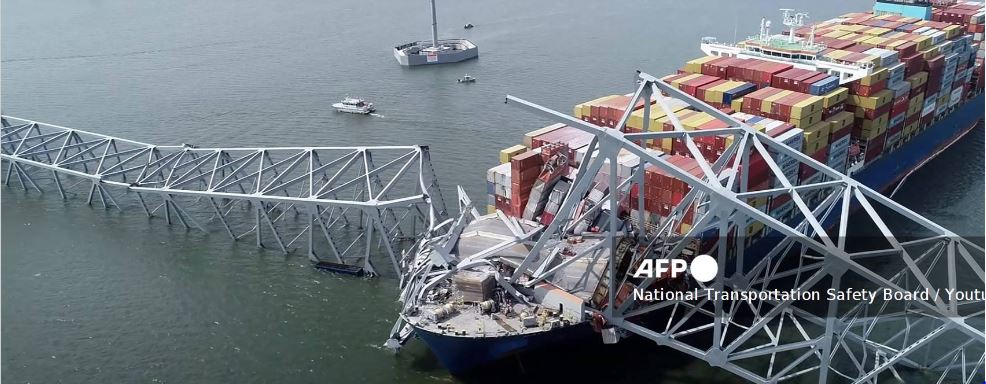The collapse of a major Baltimore bridge after a cargo ship hit it might result in the largest marine insurance payment ever, the leader of insurance company Lloyd's of London said in an interview on Thursday.
“It seems like a very big loss, possibly the largest-ever marine insured loss, but not unexpected based on what we plan for,” chairman Bruce Carnegie-Brown told CNBC.
“We’re starting to use resources in expectation of this being a very significant claim for the industry,” he added.
Six of eight construction workers are thought to have died in the incident, which occurred early on Tuesday.
With ship traffic at the Port of Baltimore halted after the accident, experts have warned of secondary economic effects, especially locally.
Baltimore is the largest port for handling vehicles in the country, including cars and heavy farm equipment, according to Transportation Secretary Pete Buttigieg. Around $100 to $200 million in value passes through the port every day.
In addition to the thousands of employees at the port, Maryland Governor Wes Moore cautioned in a previous interview that over 140,000 people could be indirectly affected by disruptions.
Carnegie-Brown informed CNBC that there would be claims for the ship, cargo, and the bridge, but it is the “second-order impacts” that would become significant.
“A lot of business is going to be interrupted,” he said, pointing out that supply chains would be disrupted by ships stuck inside the port and those initially attempting to enter.
“Those second-order effects will take some time to work through,” he added.
A US government task force on supply chain disruptions met on Wednesday to talk about the potential impacts on regional and national supply chains, following the bridge collapse, said a statement from the White House.
Since the Francis Scott Key Bridge collapse, “the White House and federal agencies have engaged extensively with industry, ocean carriers, ports and labor unions to minimize disruptions as shipments are rerouted while the Port of Baltimore is closed to ship traffic,” the White House added.
AFP



